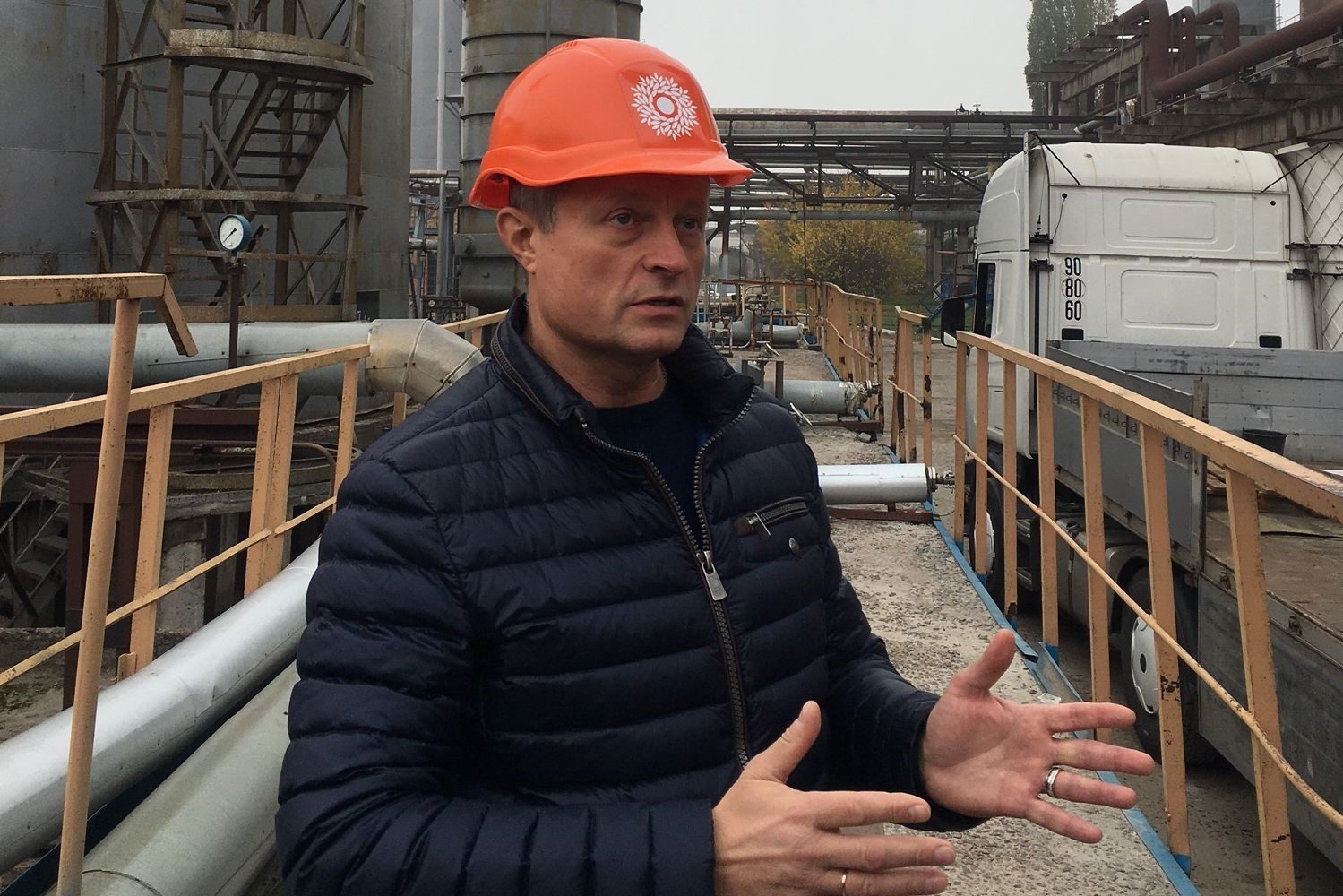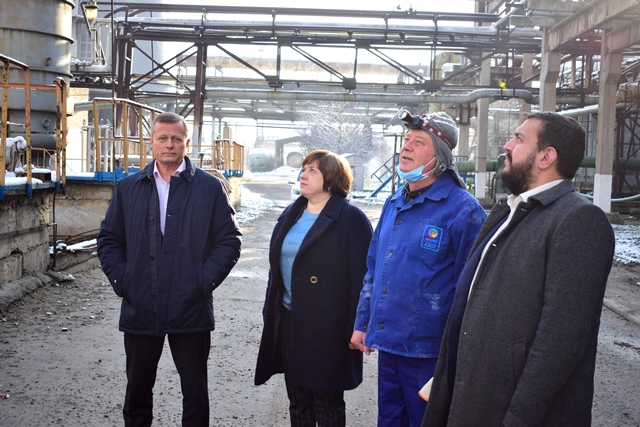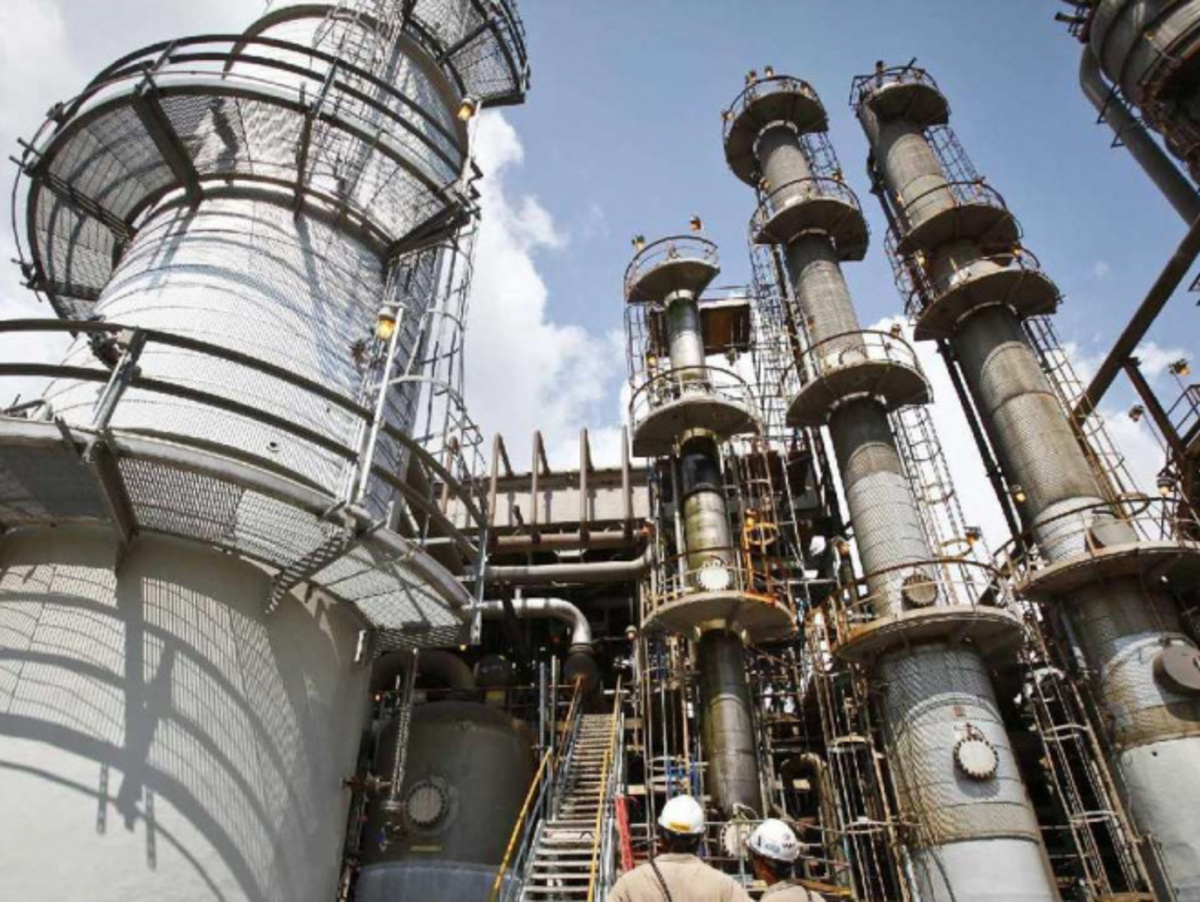
|
Group DF - international group of the companies, major investments are concentrated in the nitrogen, titanium and gas businesses. |
|
31 January 2022 Vitalii Sklyarov: providing the country with fertilizers is a matter of the country’s food securityOne of the biggest economic shocks that European producers of mineral fertilizers experienced in 2021 was the steep rise in natural gas prices, a raw material that accounts for almost 80% of the production costs. Vitalii Sklyarov, Chairman of the Board, PrJSC “Azot” (Cherkasy), told how one of Ukraine’s largest producers of mineral fertilizers goes through rough times, how to solve the problems, how the company lived through 2021, and what the prospects are for business development in 2022.  – How would you assess the company’s performance in 2021 compared to the previous year? – One can say, we had a successful year at PrJSC “Azot” (Cherkasy). First, in terms of the allocation of funds for capital and current repairs, as well as the scale of the investment programs that were implemented. Whereas in 2020 we allocated more than UAH 324 million for the implementation of all production programs, this year we have spent UAH 70 million more. Planned capital expenditure programs will allow us to increase output, reduce costs and improve the environmental performance of the production. We continue to upgrade the main production facilities and plan to develop new sites. We will deliver on our strategic plans subject to gas supply at affordable prices. This will allow the company to keep operating efficiently. Upgrading is the only way we can become more competitive. PrJSC “Azot” (Cherkasy) is one of the largest chemical enterprises in Eastern Europe. The competition is growing, and we must develop faster than our competitors. – What exactly did you manage to do? We have carried out a series of large-scale major repairs. In particular, we replaced the major equipment in M-2 and M-6 urea (carbamide) production plants, which allowed the company to increase output and reduce consumption coefficients. We have completed major repairs and reconditioning of A-5 ammonia production plant. This will ensure reliable operations of the equipment until the next overhaul scheduled for 2022 and reduce production risks. We also carried out major repairs of units producing weak nitric acid in M-5 production plant. As to M-9 production plant, we are completing the external view of the granulation tower stack. We continue the dismantling of old premises and buildings on the territory of the company, clearing away production sites for new efficient production facilities. Our goal is to increase the output. – What are your plans for further modernization? – Strategically, we will move towards production that is more efficient. Secondly, we intend to make our production more environmentally friendly. Our priority is to reduce CO2 emissions, without this, we will not be able to export to Europe. Talking about the plans for the upcoming 6 months, it is hard to make any predictions right now, because the situation in the natural gas market is very challenging. After all, gas is the main raw material for our production. Demand for mineral fertilizers is not as elastic as we would like it to be. However, we have a bullish outlook and plan to further develop the production if the situation with gas supplies and prices stabilizes. – How do you plan to develop industrial locations? Unfortunately, I cann't share with you all the details. After all, the business development strategy is a commercial secret. What I can say though, is that we plan to increase the production capacity for UAN from 1 to 2 million tons per year. Consequently, we would have to increase the capacity for the production of ammonium nitrate melt, which is worked into the urea ammonium nitrate; this would give us additional 720 tons per day! To this end, we would have to install the fifth unit that would capture and use the neutralization heat (NHU) in the ammonium nitrate production plant, which will provide this additional output. At the beginning of the year, we also plan to launch a new project, i.e. the construction of a new installation for the production of purified liquid carbamide, which is added to diesel fuel to clean car exhaust gases. We are talking about the production of the so-called Ad Blue, which would allow reducing CO2 emissions by cars. This is a new niche market for us. – As far as I understand, Ukraine is striving to move to the European Union, where they plan to gradually abandon diesel cars. Some countries have already made respective decisions. Perhaps this is what anticipates Ukraine? Indeed, we will build the installation and take this step, being aware that it might change the patterns for using vehicles in our country. However, the advantage of our production is that it is flexible, and we can at any time switch to the production of another product that is more in demand. However, unless these cars are still driving on our roads, we must take care to reduce their footprint and protect the environment against harmful substances. Even more so, Ukraine is facing the task of reducing emissions from vehicles.  – Would you mind, if I ask you a tough question? Coming back to gas prices, if the situation would not change, will we have enough fertilizers? – Natural gas is the main raw material for the production of nitrogen fertilizers accounting for 80% of the costs. Therefore, the price of gas and volume of deliveries are the main issues for us. The enterprise cannot operate at a loss. In this situation, it is crucial to prevent Ukraine’s producers of fertilizers from stopping. The reason is that we are not only talking about hundreds of thousands of jobs, the fate of people for whom their job at the enterprises is the only source of income for their families. It is important to understand that present-day agriculture is impossible without the use of a sufficient amount of mineral fertilizers. This is a matter of Ukraine's food security. Moreover, the terms of agricultural production require a massive application of nitrogen fertilizers specifically in spring. It is the work of chemical enterprises during the winter that makes it possible to produce and build the stock of fertilizers for the spring sowing campaign. The sharp increase in gas prices affected not only producers from Ukraine, but also the ones from Europe. Many countries have reduced, and in some countries, they have completely stopped the production of mineral fertilizers. This resulted in the shortage of fertilizers both in the European and in world markets. Apparently, the prospects for the supply of mineral fertilizers from abroad at prices that farmers could afford are slim due to their shortage. – That is, you have to rely only on yourself ... Do you somehow work together with the farmers to address this issue? What shall they be bracing themselves for? We communicate a lot with the farmers; we do a lot of estimations. According to our estimates, given the current gas prices, the ton of wheat will cost UAH9,000! This is unacceptable for farmers. That is why they are interested in resolving the issue as much as we are. We are working together to come up with a solution. We, the chemists, are interested in agrarians making a profit. What is good for the farmers is good for us. – But you can only provide Ukraine with fertilizers if there is a required stock of the main raw material, i.e. natural gas at a stable price. Do you imply that the shortage is inevitable? – In order to avoid it, it is important for the government to immediately join the efforts to solve this problem. Not because the retailers' margins are going down, but more fundamentally, at the industry level. As far as I know, chemists and farmers have addressed the Prime Minister of Ukraine regarding the threat of an acute shortage of nitrogen mineral fertilizers, as well as an insane growth in natural gas prices. The Federation of Employers of Ukraine, the Union of Chemists, the Ukrainian League of Industrialists and Entrepreneurs, representatives of the agricultural sector of the economy presented specific proposals on how to get out of this difficult situation and save the enterprises. In short, they suggested the Government offer the chemists a commodity loan in gas. Ukrainian Government was contemplating the opportunity to give gas on credit to Moldova! Is it a problem to offer the same option to domestic enterprises? We have repeatedly claimed and stay determined that Ukraine and Ukraine’s chemical industry is capable to meet its own demand for nitrogen fertilizers. – Could you, please, specify the proposals for overcoming the “gas crisis”? Do you have any facts and figures? – Agrarians and chemists proposed to consider the possibility of allocating up to 1.25 billion cubic meters as a commodity loan to domestic producers of nitrogen fertilizers for the period from November 2021 to April 2022 at the expense of the reserves of NJSC “Naftogaz of Ukraine”. It seems to be logical. If you want to reduce the price of fertilizers and food, you have to provide cheaper gas. At the same time, producers of fertilizers undertake to ensure its return, i.e. we are talking about futures contracts with a maturity date of April-July 2022. The idea is that all fertilizers produced from such gas will be supplied to the domestic market at prices set in accordance with the price of futures contracts. The possibility and expediency of implementing such a proposal are substantiated by appropriate calculations. Producers of fertilizers did their share of calculations.  – Are there any developments in this issue that would allow us to hope for assistance? – As far as I know, negotiations are going on at the moment. However, I do not know how these debates will end and whether the Government will reach out to the farmers and chemists. The question is how much gas has NJSC “Naftogaz of Ukraine” and whether the winter will be cold or not. I believe that the Government has to take actions that are more specific in order to provide the Ukrainian market with fertilizers at affordable prices. At present, nobody wants to buy fertilizers from Poland, Georgia, or the EU. These countries also experience a deficit and prices are 30-40% higher than in Ukraine. The Government should support its own producer of fertilizers, though. This support should be coherent. It may include both the supply of domestic gas at affordable prices, and various tax and customs instruments to stimulate the industry. For example, what should be done with the import of UAN and urea from Belarus at dumping prices? This is a controversial issue. What shall you do with the market of compound fertilizers? What about potassium fertilizers? These are all issues of industrial policy. We can observe the practices of aggressive support for industries all over the countries. Look at how the EU and the US are protecting their markets! Look what China has been doing! The Government and business must work together to overcome the difficulties that burst into our lives, beyond the control of each of the parties. Just like the coronavirus, which we are fighting together. Businesses were not counting money; instead, they gave a hand in order to save the most precious what we have, i.e. people's lives, during a pandemic. Pursuant to the requests from the Government, mayors and governors, we provided medical oxygen. During the last wave, PrJSC “Azot” (Cherkasy) shipped almost 1,300 tons of medical oxygen to different regions of Ukraine for free to meet the needs of the health care sector. I believe this is the best example, although not the only one, of the fact that we are socially responsible to Ukraine's people. I reckon that now is the time when the Government must demonstrate its responsibility, use its own resources and capabilities to help the producers of mineral fertilizers. – Summarizing our interview, I would like to ask you what are your expectations for this year? Do you have reasons to be optimistic? – We lived through various stages in the life of the enterprise: we had our ups and downs, successes and failures. However, I am an optimist. The enterprise will work and people will receive a salary. At present, the most important thing is that the Government should support domestic producers. This will make sure that Ukrainians will have bread on their tables. This is key to the food security of the country. |